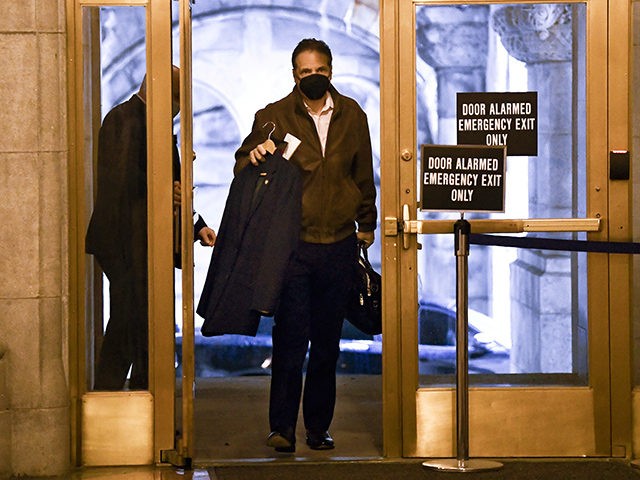New York Gov. Andrew Cuomo (D-NY) announced Monday that the state will likely loosen coronavirus restrictions in the coming days.
“When the positivity is down and the hospitalization rate is down and the infection rate is down and the RT rate is down then you can increase economic activity,” Cuomo said during a press conference. “I think we’re at a new place now and we can start to adjust that valve and start to open up more economic activity and reduce some of the restrictions, like with the micro-cluster zones.”
“We believe that we are at the end of the holiday spike period,” he added. “We are at a period of time where we believe those adjustments are sound.”
Cuomo comments come as New York’s rate of transmission has dropped below 1.0, which the governor called an encouraging development. On Sunday, coronavirus hospitalizations hit 8,730, down from more than 9,000 last month. Cuomo did not elaborate on what sort of restrictions could be eased.
New York would not be the only state to lift restrictions in recent days.
State health officials in California lifted statewide regional stay-at-home orders Monday, and Gov. Gavin Newsom was expected to drop some COVID-19 restrictions as state intensive care unit hospital capacity was expected to increase.
Health officials said hospital capacity was predicted to be greater than 15% in the San Joaquin Valley, Southern California and the Bay Area, according to four-week projections. The Sacramento region exited the stay-at-home order on Jan. 12 and the Northern California region never entered the order, a press release from the California Department of Public Health said.
“Californians heard the urgent message to stay home as much as possible and accepted that challenge to slow the surge and save lives,” Dr. Tomás Aragón, CDPH director and state public health officer, said in a statement. “Together, we changed our activities knowing our short-term sacrifices would lead to longer-term gains. COVID-19 is still here and still deadly, so our work is not over, but it’s important to recognize our collective actions saved lives and we are turning a critical corner.”
The UPI contributed to this report.

COMMENTS
Please let us know if you're having issues with commenting.